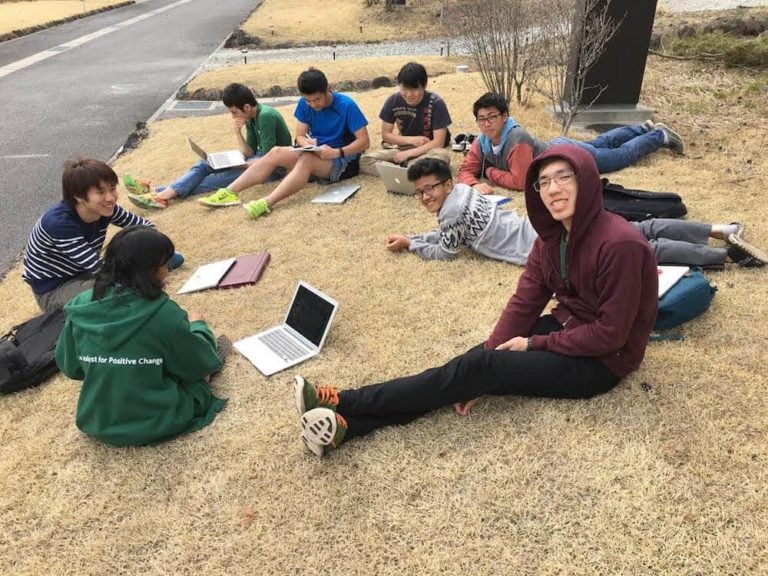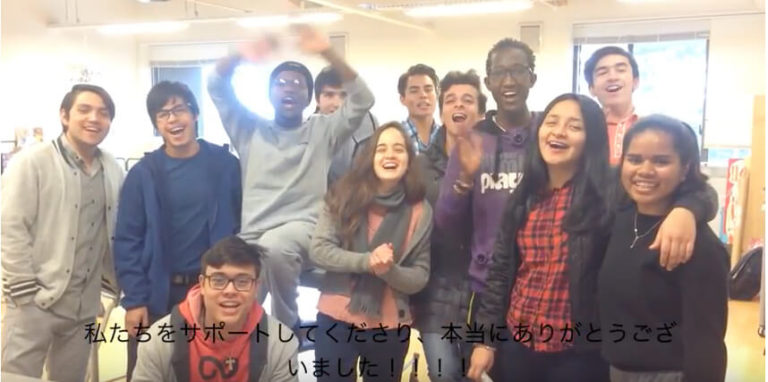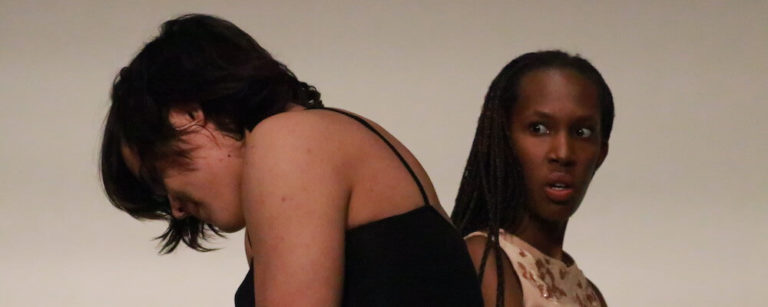Teaching sea safety and preservation
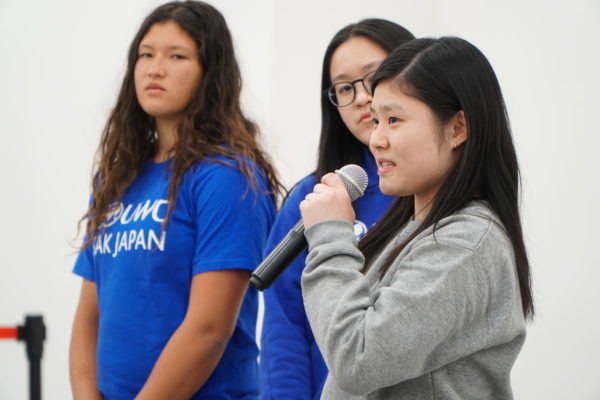 One of the first things Lin (Japan / Class of 2020) told us was that she was not good at public speaking. Yet after graduating from UWC ISAK Japan in 2020, she went straight to coordinate and teach classes in English and Japanese to 200+ students at the Atlantic Pacific Summer School on sea safety, disaster prevention, and oceanic plastic pollution. Lin is now a Project Coordinator at Atlantic Pacific to this date. Their action is anchored in the town of Kamaishi, deeply affected by the Great East Japan Earthquake of March 2011 which provoked the Fukushima nuclear incident.
One of the first things Lin (Japan / Class of 2020) told us was that she was not good at public speaking. Yet after graduating from UWC ISAK Japan in 2020, she went straight to coordinate and teach classes in English and Japanese to 200+ students at the Atlantic Pacific Summer School on sea safety, disaster prevention, and oceanic plastic pollution. Lin is now a Project Coordinator at Atlantic Pacific to this date. Their action is anchored in the town of Kamaishi, deeply affected by the Great East Japan Earthquake of March 2011 which provoked the Fukushima nuclear incident.
March 11, 2011, 2:46 PM
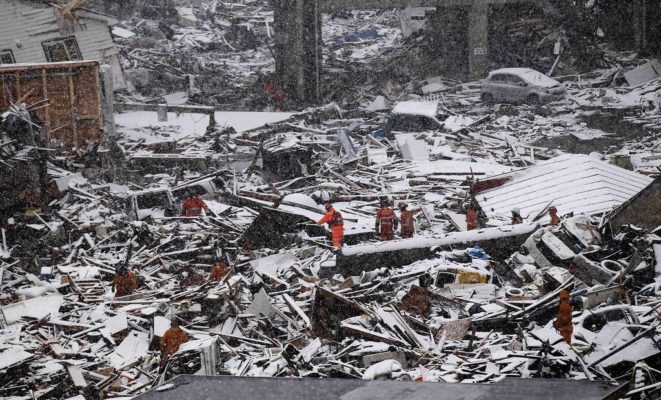 At 2:46 PM on March 11, 2011, a magnitude 9.1 undersea megathrust earthquake occurred, its epicenter 76 km away from the coast of Tohoku. The official figures released in 2021 reported 19,747 deaths, 6,242 injured, and 2,556 people missing. Around 228,900 people still lived away from their homes in temporary housing in 2015. One of UWC ISAK Japan Class of 2020 students, Sogo, lost his grandmother in his hometown of Kamaishi to the disaster. This tragic loss deeply affected him. So it was only natural for him to try and do something for his community.
At 2:46 PM on March 11, 2011, a magnitude 9.1 undersea megathrust earthquake occurred, its epicenter 76 km away from the coast of Tohoku. The official figures released in 2021 reported 19,747 deaths, 6,242 injured, and 2,556 people missing. Around 228,900 people still lived away from their homes in temporary housing in 2015. One of UWC ISAK Japan Class of 2020 students, Sogo, lost his grandmother in his hometown of Kamaishi to the disaster. This tragic loss deeply affected him. So it was only natural for him to try and do something for his community.
Project Kamaishi
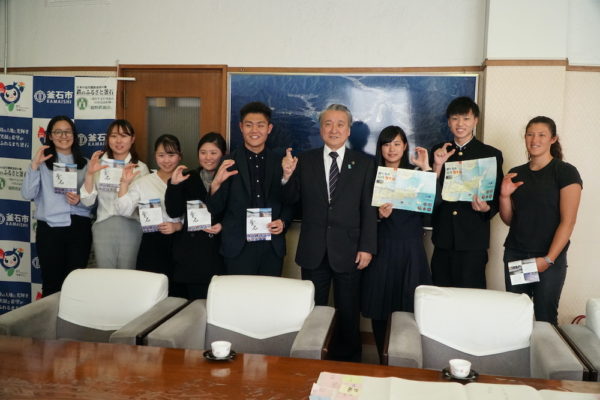
The region is still suffering from the aftermath of the disaster. During October 2018 project week, Sogo launched the Kamaishi project to revitalize his hometown through sustainable tourism. Lin embarked on the project with a dozen of other students. In December 2019, they went to Kamaishi for the first time. That’s when they met the Atlantic Pacific team. The Kamaishi Project’s main goal was to organize a local, sustainable tour for rugby world cup visitors in October 2019. But that was the exact time typhoon Hagibis hit Japan. As a result, students had to cancel the plans they had worked so hard to develop.
Make decisions in the face of discomfort
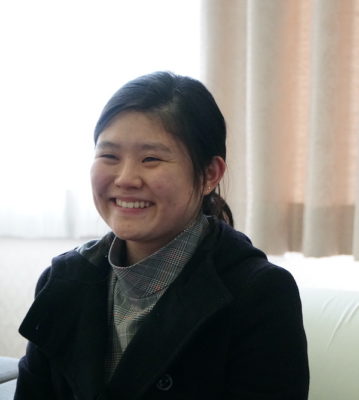
But the adventure would not stop there for most of the students. Lin decided she would continue helping people inKamaishi as another disaster hit: the coronavirus pandemic. The Atlantic Pacific team is UK-based, which meant they couldn’t come back to Japan for their Summer School in Kamaishi. Thus they entrusted the freshly graduated Lin with the coordination and teaching of the program in both Japanese and English in cooperation with the local community.
Help people secure others and the planet
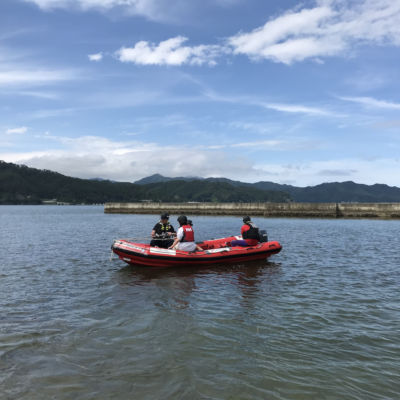
The Atlantic Pacific Initiative originated from a fundamental realization: no lifeboat service existed in Japan that could navigate in marine debris fields. So when its founder Robin Jenkins observed this during his visit to Kamaishi in 2014, he decided to take action.
‘On the evening after the tsunami had passed, the survivors went to look to find others. What they witnessed is beyond most people’s comprehension. During the search, they could hear the sounds of those who had been washed out to sea, screaming and crying from amongst the freezing cold debris. Knowing there was nothing they could do for them, the rescuers remained on the beach listening to the cries fade as they perished.’
Whereas there is no magic solution for this tragic event never to happen again, the Atlantic Pacific initiative invented the “lifeboat in a box” concept. This lifeboat is in Nebama Bay and supports the Kamaishi triathlon, and also serves to educate the local population about sea safety.
Becoming a leader at UWC ISAK Japan
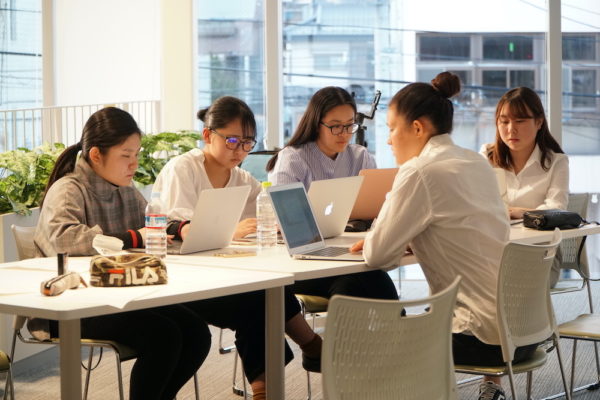
“I don’t think I would have taken this challenge had I not studied at UWC ISAK Japan,” thinks Lin. She has many fond memories from school in Karuizawa and is still in touch with her roommates. However, Lin didn’t feel comfortable speaking in public and had to prepare for hours. So now that is what she is doing every day, talking with students, Kamaishi locals, and other stakeholders. Going to Kamaishi for this project was her first time going to the Tohoku region, devastated after the March 2011 disaster. And it convinced her that she could already do a lot for local communities.
A sustainable future
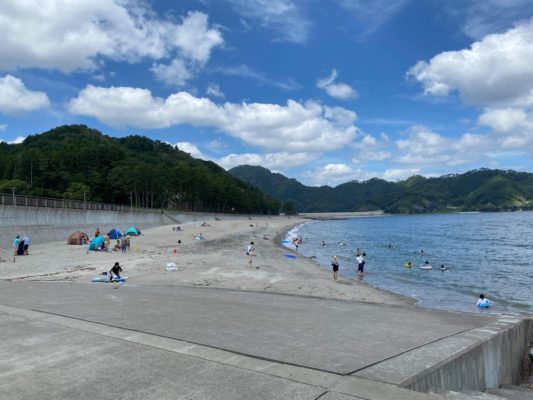
Lin doesn’t know for sure what she wants to do in the future. She had initially planned to study Management at SOAS University in the UK. However, Lin delayed one year to work with Atlantic Pacific and rejected the offer. She is now applying to universities in Japan to study Management and Sustainability. She plans to start in September. For now, she is focused on Atlantic Pacific spring and summer schools and Ocean Revival Competition. This competition aims to inspire young people to think of other fantastic ways to tackle plastic ocean pollution.
We wish Lin the best for her future and know that it will be generous and sustainable.
